WORDS
Heidi Helbig
photography
Pete Thornton
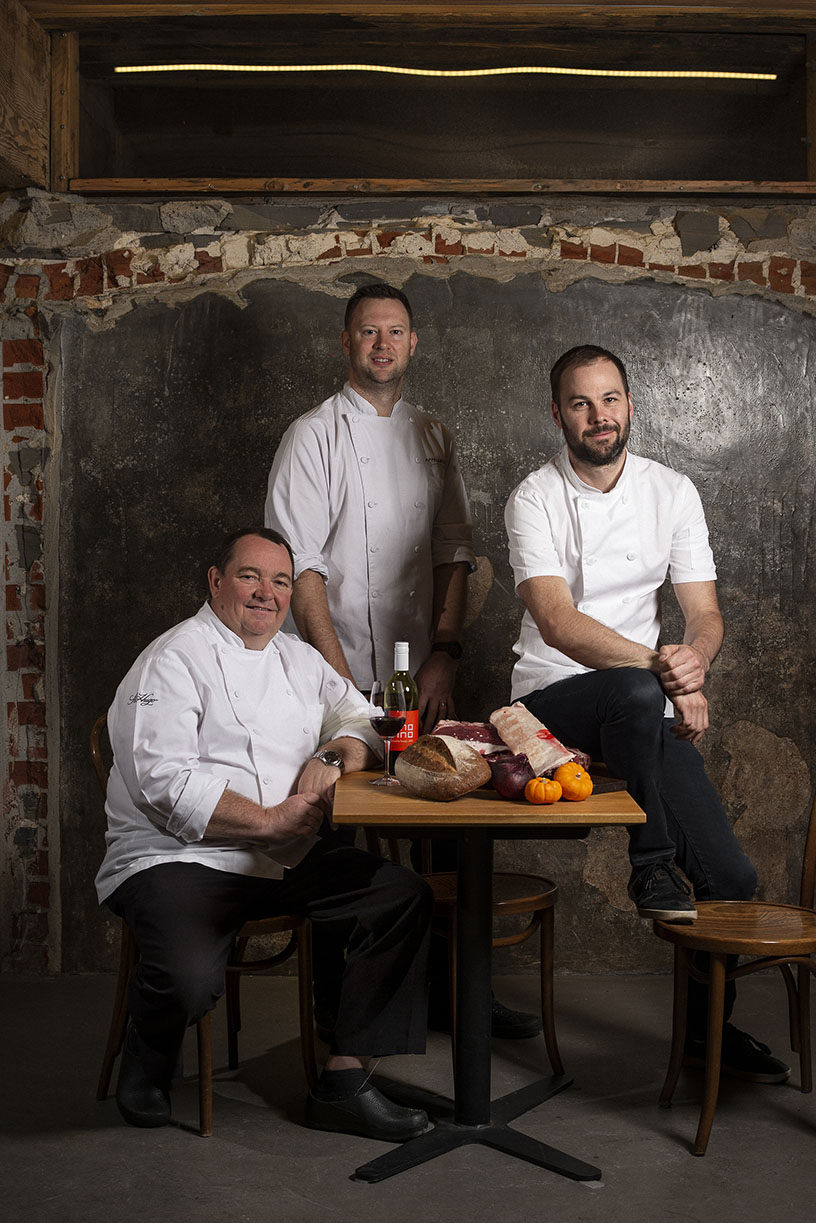
In times of change a group of Barossa chefs is plating up more than just fine food.
As the setting sun bathes the Barossa Ranges in crimson, a handful of executive chefs sits down at Appellation to discuss another changing landscape – that of Barossa Food.
The newly-formed chefs’ network was spearheaded by Mark McNamara of St Hugo Restaurant and Daniel Murphy of Appellation, who saw that the Barossa’s food and hospitality scene was slowly starting to fragment.
The pair are champions of “contemporary, fresh and focused” – both on the plate, and within their sector.
“Dan and I would go for a beer whenever we could and often said we should be getting some more chefs together,” recalls Mark, an industry veteran of over 40 years.
“I know people who have been around the Valley a long time. Dan knows the next generation, so between us we invited people to a catch-up at the Greenock pub.
“Half a dozen people said ‘see you there’ so we put a couple of bar stools in the front bar – and 24 people turned up to our first meeting!
“That’s when it became apparent many of these people didn’t know each other.
“We went around the room doing introductions and that kind of galvanised us.”
Sam Smith, executive chef at Fino at Seppeltsfield, says that first meeting cut through layers of isolation.
“It was good for us, and for me personally, being new to the region – well, five years,” he smiles.
“When I started at Fino it was heads down. A lot of chefs feel like they are stuck in the kitchen, in their own four walls. It’s hard to find those connections.”
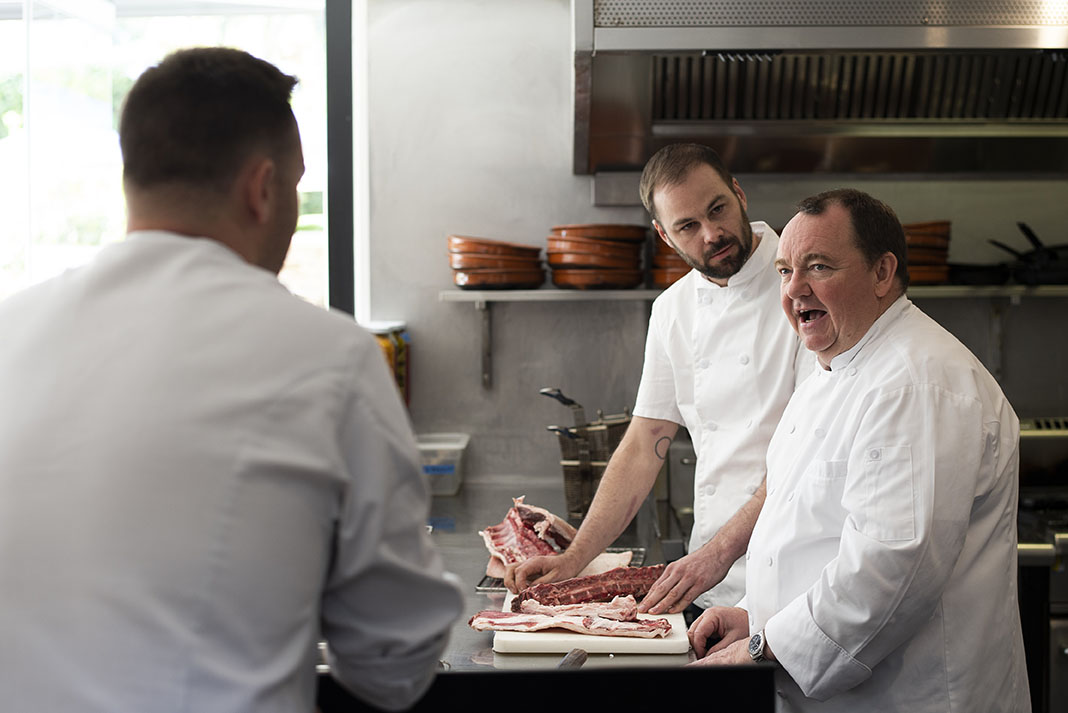

“I know people who have been around the Valley a long time. Dan knows the next generation, so between us we invited people to a catch-up at the Greenock pub.”
- Mark McNamara
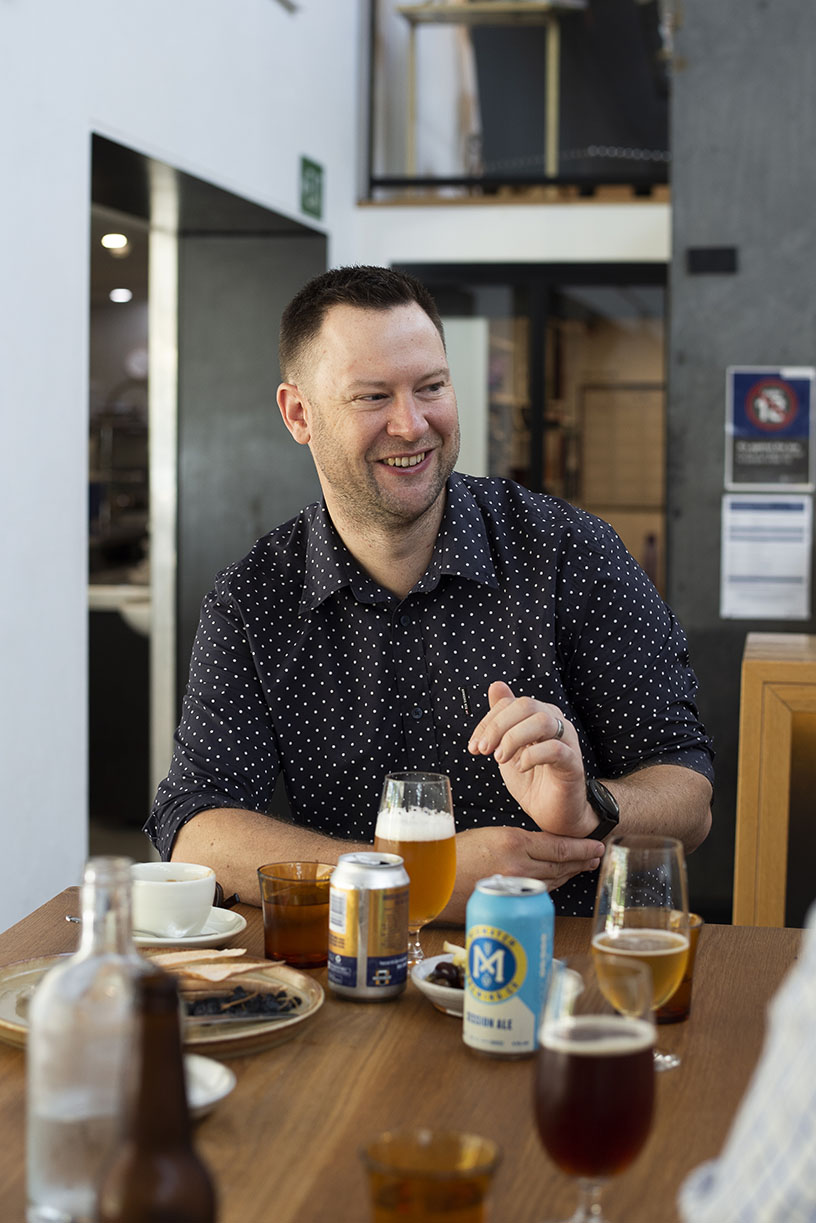
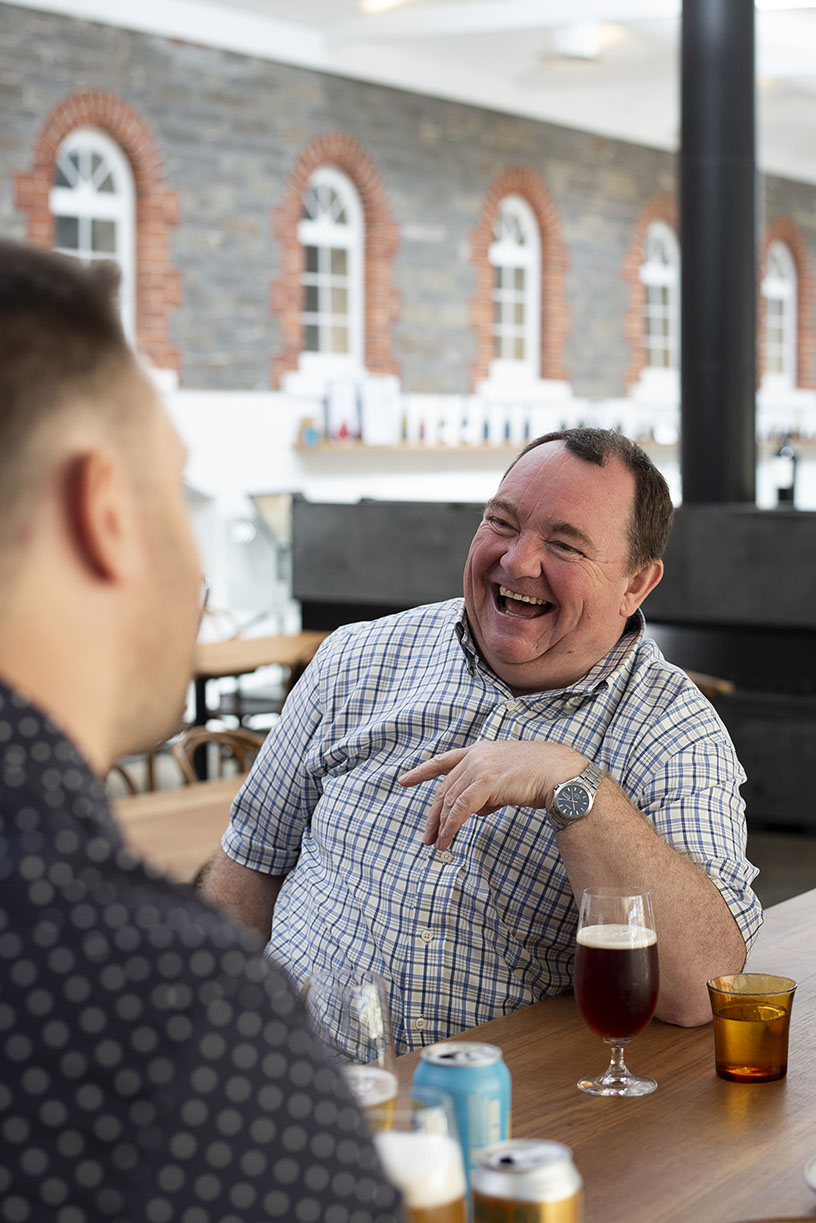
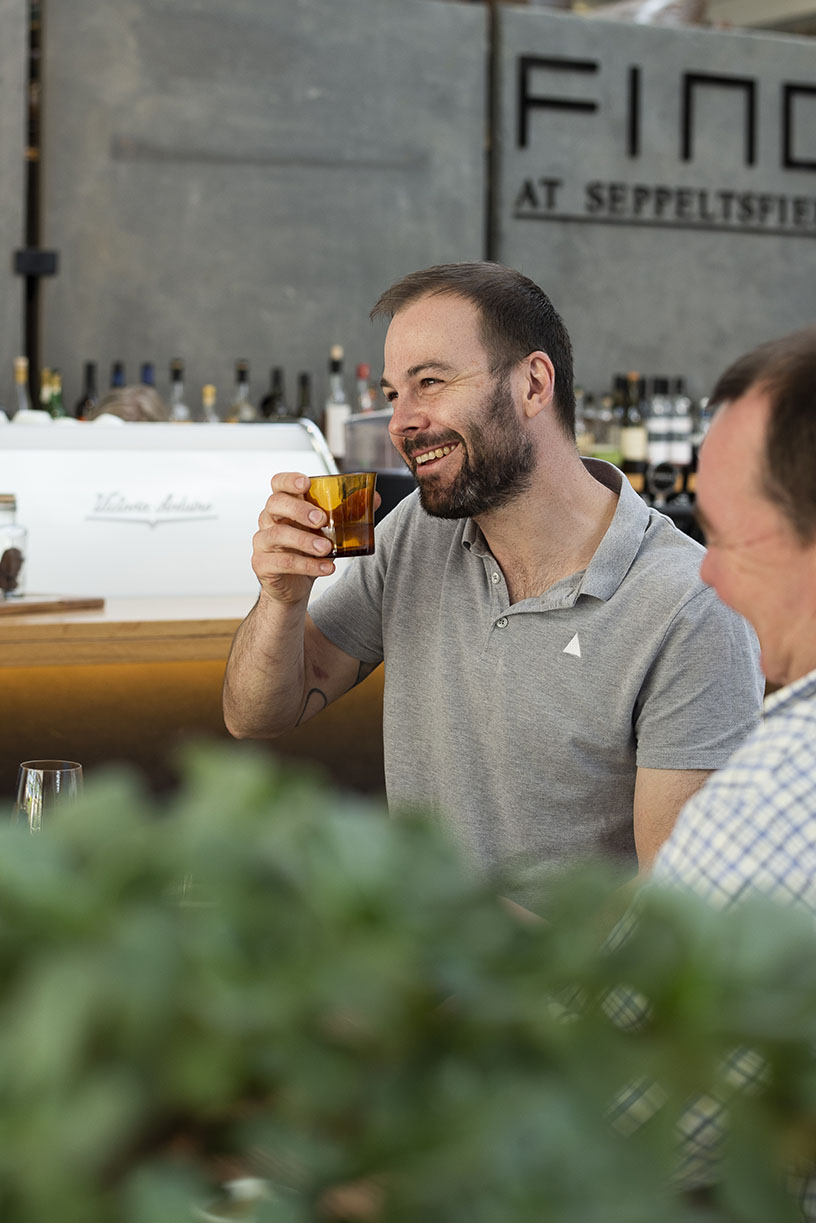
With a high calibre leadership group that includes Stuart Oldfield (Musque and Handmade Catering) and Owen Andrews (Owen Andrews Catering), a little ego might be expected.
However the tone of the catch-ups is distinctly egalitarian and collegiate.
“As executive chefs we share a responsibility to think outside of our restaurants into the broader community and region,” says Sam.
“We come together to talk as equals and let off steam with people who understand,” adds Mark.
“We realise the group has so much strength and there’s more we can offer,” says Dan.
While the conversation is casual, the issues facing the industry are more pressing.
Mark cites widespread mental health issues among chefs caused by isolation, pressure and long hours, as well as poor education and training for emerging chefs.
“We started to identify things we knew intuitively, for example the dilution of formal skills training for young chefs,” says Mark.
“These days everything comes in a box or a packet so they are not exposed to butchery, fermentation, smallgoods, baking, preserving.
“All the traditional skills that underpin what the Barossa is, what our culture is about, are being marginalised.”
Dan agrees there’s no room to cut corners.
“People expect when they come into our restaurant that the lamb is from Hutton Vale and the pork is local.
“Very often that means you have to get in a whole animal and you have to be able to use every cut,” he says.
“It’s the same with fruit. At this time of year you have an abundance of stone fruit and it needs to be used within a few weeks, so you need to understand processing and preserving techniques.”
Adds Sam: “These are skills in the kitchen that are expected, and that’s something we can offer.
“As chefs in a regional area we have a direct connection with people who produce, who grow, who raise. When you work in the city you really have to search for that.
“We can champion those traditions and the food culture in conjunction with the wine culture, and make sure these products are still around in the future.”
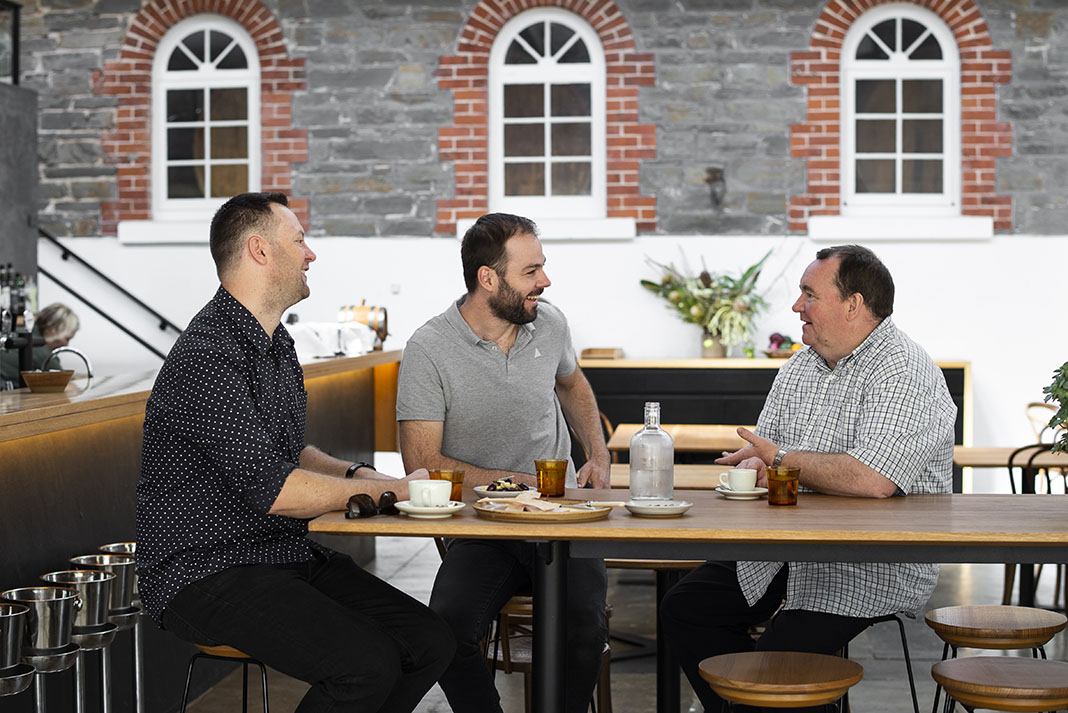
That’s a big challenge in a food landscape that is rapidly changing.
Things like food allergies and a growing preference for vegetarian and vegan are shaping how people eat.
The rise of TV food shows and the saturation of social media have also confused people’s perceptions about food.
“To be honest, presentation is the last thing I’m thinking of,” says Mark.
“Flavour, texture and technique, that’s what I’m looking at…but there’s a whole generation of people who haven’t been exposed to that.”
Sam agrees food should be “experienced”.
“It’s not just about people coming and eating food in your restaurant.
“It’s the experience of something bubbling, smelling, of looking at something – having that connection and creating that stimulation.”
Regardless of changing times, and food habits, Mark believes the Barossa’s food credentials are in good hands. He credits new players in the market with shining a light on food that is relevant and fresh.
“El Estanco, Ember and Fleur Social are great examples,” says Mark.
“Ultimately it’s important to make sure the food of our region remains contemporary, fresh and focused without discarding our traditions.”


